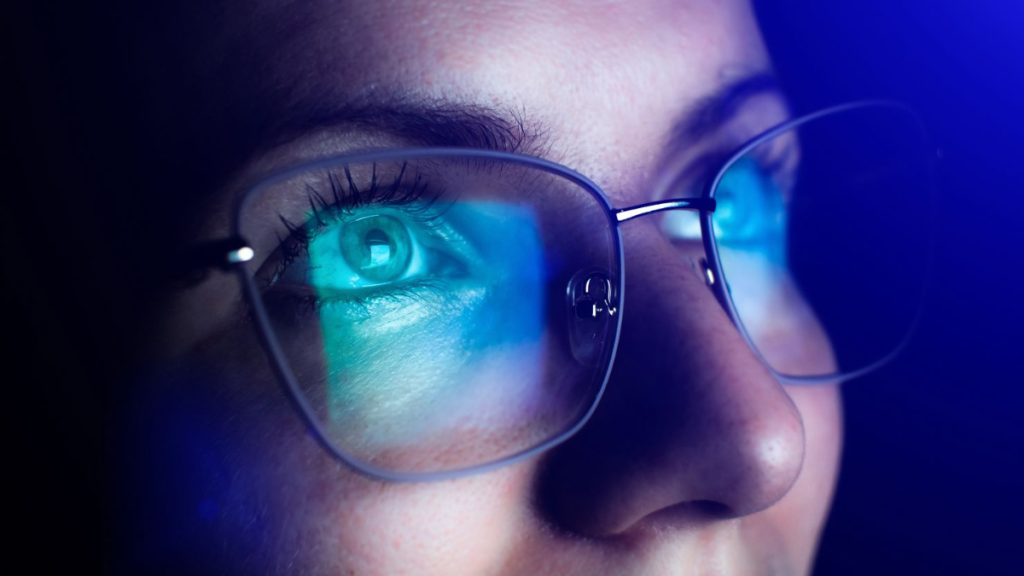In today’s digital world, we spend much time looking at screens — from phones and laptops to TVs and tablets. Due to this, many people are concerned about the effects of blue light on their eyes. One popular solution is blue light glasses. But do they work? Let’s take a closer look.
What Is Blue Light?
Blue light is a type of light that naturally comes from the sun, but it’s also found in artificial sources like computer screens, smartphones, and LED lighting. It has a short wavelength and high energy, which can affect our eyes and sleep cycle.
While blue light during the day helps boost alertness, too much of it, especially at night, can mess with your body’s natural sleep rhythm.
How Do Blue Light Glasses Work?
Blue light glasses feature special lenses designed to block or filter out blue light from digital screens. They work by either absorbing the blue light or reflecting it away, so your eyes receive less of it.
You can find them in both prescription and non-prescription versions, and they often look just like regular glasses.
Benefits of Blue Light Glasses
Let’s look at what wearing blue light glasses might help with:
Reduce Digital Eye Strain
Staring at screens too long can cause eye discomfort, dry eyes, and blurry vision. Some users say these glasses help reduce that feeling of strain.
Improve Sleep Quality
Wearing blue light glasses in the evening may help reduce blue light exposure and support the body’s melatonin production, which can help you fall asleep more easily.
Lower Risk of Headaches
Some people experience fewer screen-related headaches when using blue light filters.
Prevent Disruption to Sleep-Wake Cycle
If you work late at night or scroll on your phone in bed, these glasses may help you keep a more natural sleep rhythm.
Common Myths About Blue Light Glasses
They fix all eye problems
They don’t replace eye exams or fix vision issues. You still need to see an eye doctor if you have ongoing problems.
All glasses block 100% of blue light
Not all glasses block the same amount. Some only filter a small percentage, while others offer stronger protection.
They’re only for gamers or office workers
Anyone who uses digital screens — students, remote workers, or even casual phone users — can benefit.
Are There Any Side Effects?
Generally, blue light glasses are safe to use and don’t have side effects. However, some people may need a few days to adjust to wearing them, especially if the lenses are tinted. If you feel dizzy or uncomfortable, check with an eye specialist.
Tips to Protect Your Eyes (With or Without Glasses)
Even if you wear blue light glasses, these simple habits can help your eye health:
- Use the 20-20-20 rule: Every 20 minutes, look 20 feet away for 20 seconds.
- Adjust screen brightness and use night mode.
- Keep your screen at eye level and arm’s length.
- Blink often to avoid dry eyes.
- Avoid screens 1–2 hours before bedtime.
Conclusion: Do Blue Light Glasses Work?
Blue light glasses are not a miracle cure, but they can provide real benefits for people who spend long hours in front of screens. They may help reduce eye strain, improve sleep quality, and protect your eyes from excessive artificial blue light.
If you often wear contact lenses and use digital devices a lot, using blue light glasses over your lenses might offer extra relief and protection. Combined with good screen habits—like taking breaks and adjusting brightness—they can make a noticeable difference.
While research is ongoing, many people find blue light glasses helpful and worth trying if you experience tired or irritated eyes due to screen time. Whether you wear regular glasses or contact lenses, protecting your eyes from blue light is important in our digital age.

